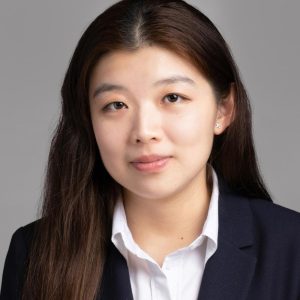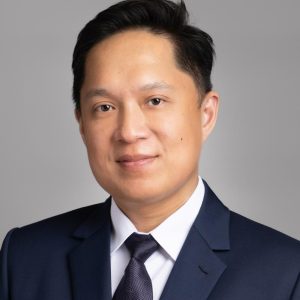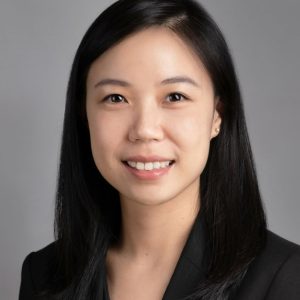(ONLY) I’VE GOT THE POWER – SINGAPORE INTERNATIONAL COMMERCIAL COURT REAFFIRMS EXCLUSIVE SETTING ASIDE POWER OF SEAT COURT; GRANTS ANTI-SUIT INJUNCTION
May 20, 2024
On 26 April 2024, the Singapore Courts issued the first known Singapore International Commercial Court (SICC) judgment granting a post-award anti-suit injunction, protecting their setting-aside jurisdiction and the integrity of Singapore-seated awards.
Commencing proceedings on home turf rather than the proper forum is a common guerilla tactic for dissatisfied parties, especially after a loss at arbitration. The SICC has confirmed that actions to invalidate an award outside the seat contravene the basic principle of arbitration law that only the courts of the seat are empowered to set aside any award rendered there.
The judgment
In the judgment of Pertamina International Marketing & Distribution Pte Ltd v P-H-O-E-N-I-X Petroleum Philippines, Inc [2024] SGHC(I) 13 (Pertamina International), the SICC dismissed an application by a Filipino respondent to discharge an anti-suit injunction earlier granted by the SICC against court proceedings in the Philippines that were in essence an attempt to invalidate a Singapore-seated award.
The court also found the respondent’s continued prosecution of the Philippines proceedings seemed to “clearly constitute” a breach of the anti-suit injunction and contempt of court.
In Pertamina International, the SICC also made several observations about (i) the Court’s discretion to hear a party in contempt of court and (ii) when a party would have been taken to have submitted to the jurisdiction of a court in the context of challenges to jurisdiction.
Why does this matter?
- Parties to arbitrations seated in Singapore now know that the SICC will follow the Singapore Courts in not hesitating to protect their status as the supervisory court and their exclusive power to hear challenges to an award within the strict three-month limit.
- Litigants should be aware that the Singapore Courts, including the SICC, will not hesitate to make a finding of contempt in clear cases and may exercise their discretion to refuse to hear parties until the contempt is purged.
- An applicant seeking to dispute the jurisdiction of the Singapore Courts, including the SICC, should be careful in the drafting of their applications and prayers for relief to ensure that they do not amount to a submission to jurisdiction.
Prolegis LLC successfully acted for the claimant, Pertamina International Marketing & Distribution Pte Ltd (PIMD), in both obtaining the earlier anti-suit injunction and resisting this attempt at discharge.
Herbert Smith Freehills Prolegis acted for the claimant in the underlying arbitration, securing an award of more than US$142 million, and is currently coordinating a multi-jurisdiction enforcement strategy. ACCRA Law in Manila has provided Philippines law advice throughout.
The anti-suit injunction
The award debtor P-H-O-E-N-I-X Petroleum Philippines, Inc (Phoenix) did not apply to the Singapore Courts to set aside the award within the three-month time limit under Singapore law.
Instead, it commenced an action in the Philippine Courts to obtain declarations that the underlying arbitration and award were void – although no enforcement proceedings had been commenced in the Philippine Courts. PIMD applied for and obtained an urgent anti-suit injunction against these proceedings.
Phoenix applied to the SICC to set aside the interim anti-suit injunction earlier obtained by PIMD and a dismissal of the permanent anti-suit injunction application sought by PIMD. International Justice Sir Bernard Eder, who granted the earlier injunction, refused to grant the reliefs sought by Phoenix.
Eder IJ found that the Philippine proceedings were clearly an attack on the Singapore-seated award, and rejected Phoenix’s claims that the proceedings were only a pre-emptive attempt to resist enforcement of the Award (especially as PIMD had not commenced enforcement proceedings in the Philippines at the time of Phoenix’s action).
Eder IJ further reiterated that as supervisory seat court, “it is the function of this court to protect the integrity of the Award… it is well established that this court can and generally will grant appropriate injunctive relief to protect an award to restrain breaches of an arbitration agreement… this applies with equal force even where arbitration proceedings have ended and an award has been rendered“: Pertamina International at [50] – [51].
Notably, the SICC reached this conclusion even though the Philippine Court appears to have decided that it has the jurisdiction to determine whether there is an arbitration agreement between PIMD and Phoenix. This shows that the Singapore Courts, including the SICC, will not hesitate to protect the seat court’s primacy even if another court takes an opposing view.
The discretion to refuse to hear a party in contempt (see [28] to [35] of the judgment)
The SICC further endorsed the general principle that under Singapore law the court has a discretion to refuse to hear a party in contempt – the first time in recent years that the Singapore Courts have made a clear pronouncement on this issue.
In determining that Phoenix’s actions in proceeding with the action in the Philippines clearly constituted a contempt of court, the SICC considered that:
- Phoenix’s representative was present at the hearing of the interim anti-suit injunction application, made certain submissions, and was fully aware of the terms of the order. The terms of the order and the actual order were communicated to Phoenix on multiple occasions.
- In the proceedings in the Philippines, Phoenix sought an order that the underlying arbitration and award were void.
- Phoenix continued to pursue the proceedings in the Philippines by (i) attending a hearing and failing to inform the Philippines Court that an interim anti-suit injunction order had been issued by the SICC, and (ii) filing submissions seeking the advancement of the proceedings in the Philippines and making statements regarding the conduct of the hearing for the interim anti-suit injunction application at the SICC.
- Phoenix was put on notice of its contempt in continuing to pursue the proceedings in the Philippines but continued its actions.
The submission to the jurisdiction of the court
The SICC also made various observations about a party’s submission to jurisdiction in the context of challenges to the jurisdiction of the court.
- It found that Phoenix had submitted to its jurisdiction because the relief sought included a claim that the SICC should, in the exercise of its discretion, decline jurisdiction to hear the application for a permanent anti-suit injunction, and that claim was a primary prayer and not a prayer in the alternative – at [42].
- It found that PIMD had not submitted to the jurisdiction of the Philippines Court. The steps taken by PIMD to assert that the Philippines Court had no jurisdiction over PIMD were defensive in nature and to “parry a blow“, which would not be deemed to be a step in the proceedings amounting to a submission to jurisdiction – at [62].
The power to grant an interim order prior to service of originating process (see [43] of the judgment)
The SICC also confirmed that lack of formal service of originating process is not fatal to the grant of an interim anti-suit injunction order, and that the Singapore Courts regularly issue interim orders before formal service of the originating process in an appropriate case – at [43].
The SICC also noted that PIMD was actively pursuing steps to effect service on Phoenix through diplomatic channels and that such service was expected to take place shortly, and there was no suggestion that such service would be invalid.
How we can help you protect your interests
We, through Prolegis, frequently act for parties to arbitrations in arbitration-related court proceedings including setting aside applications, enforcement applications and anti-suit injunction applications.
To find out more about protecting your interests in Singapore-seated arbitrations, please contact the authors, Yanguang Ker and Charlene Wee, the rest of the Herbert Smith Freehills Prolegis team below, or your usual Herbert Smith Freehills Prolegis contact.
Prolegis LLC and Herbert Smith Freehills LLP (www.herbertsmithfreehills.com) are members of a Formal Law Alliance in Singapore marketed as Herbert Smith Freehills Prolegis (https://www.herbertsmithfreehills.com/content/herbert-smith-freehills-prolegis).

Yanguang Ker |

Charlene Wee |
||||

Daniel Chia |

Gitta Satryani |

Tomas Furlong |

Ella Wisniewski |

Claudia Chan |